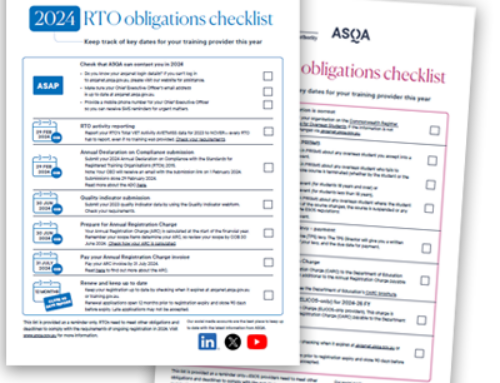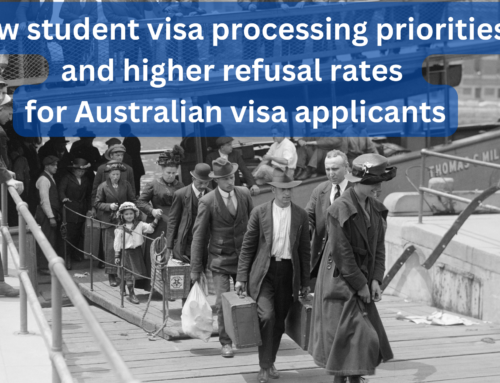The Integral Role of Education Agents
Agents in the education sector have long been pivotal in Australia’s international education system, acting as the principal link between schools and prospective students. Agents of education play a significant role in shaping the public perception and experience of individuals who are looking for educational opportunities in a foreign country. The fact that their activities have a direct impact on the accomplishments of educational organizations exemplifies the indispensable role they play in the sector.
The upcoming change that will be implemented by the government of Australia on 11 December 2023, may, however, cause the education agents to experience a level of disruption that has never been seen before.
Regulatory Focus on Unscrupulous Practices
The government has recently increased its scrutiny of certain education providers and their agents who have engaged in dishonest behavior. Training providers who enroll international students are legally required by the ESOS Act and National Code to refrain from making false or misleading claims in their marketing materials, especially when it comes to migration outcomes. Furthermore, it is imperative to comply with Australian Consumer Law when advertising courses and services, underscoring the significance of ethical conduct in this industry.
Government Concerns and Media Coverage
As a result of risk monitoring initiatives taken by the government and media reports, dubious student transfer practices have come to light. Concerns have been raised regarding international students who arrive in Australia with the intention of enrolling in a particular provider but then unexpectedly switch to a different provider that offers lower-level, more affordable courses. The integrity of the educational system and the intentions of students to study in Australia have been called into question as a result of this trend-related concern.
Impending Changes and Challenges
There is a growing amount of pressure on the government of Australia to reduce net migration, which has significant repercussions for international students, educational institutions, and agents. Proposed changes include:
- Caps on international students are allowed entry.
- Implementing taxes on foreign students and hiking student visa fees from AUS$710 to $2,500,
- Targeting those enrolling in “cheaper, low-value courses.”
- Regulating Education Agents: Introducing stricter regulations to oversee agent activities and ethics.
- Raising the minimum English scores for incoming students and focusing on genuine student assessments.
- Restricting post-study work visas by offering shorter post-study work visas and limiting extensions to high-earning graduates, aiming to reduce the number of international students and graduates in Australia.
Current Issues with Agents
- The absence of regulatory oversight makes it possible for anyone to become an agent, which results in a number of different ethical problems.
- High Commission Rates: When it comes to student fees, agents in Australia currently receive commissions ranging from 20 to 40 percent, which raises concerns about the motivations and practices of the agents.
- Agent Ownership and Student Poaching: Concerns such as agents owning colleges and encouraging students to enroll in courses of lower quality have led to a crackdown on private colleges that have high refusal rates.
Envisioning the Future of Education Agents
It is possible that significant shifts will occur in the future landscape of education agents in Australia:
- By restricting agent operations to locations outside Australia.
- Controlling the financial incentives that agents receive by imposing a limit on their commissions.
- Internal management by employing staff members who are solely responsible for managing interactions with students on college campuses.
- The management of visas would be limited to onshore migration agents who have specialized staff, much like travel agents, and who would charge for their services.
- The implementation of restrictions for ELICOS students that are comparable to those in the United States, the restriction of work opportunities, and the limitation of study areas.
- Increasing the requirements for English proficiency while simultaneously reducing the number of available spots in specific courses.
In conclusion, the education sector in Australia is currently at a crossroads, and there are significant reforms on the horizon that are aimed at improving quality, ensuring ethical practices, and aligning with broader migration policies. Education agents, who play a pivotal role in this landscape, are required to adjust to these changes by maintaining a balance between their roles as educators and being compliant with the ever-evolving regulatory frameworks. The future success of international education in Australia will be contingent on the efficient management of these dynamics, which will ensure a system that is both sustainable and reputable for all of the stakeholders involved throughout the process.
We at Educli have prepared a comprehensive guide on agents and international students management. Please contact us for more information or visit our website.





Leave A Comment